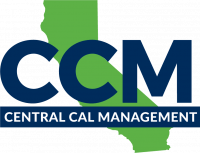
The Benefits of Working with a Real Estate Agent when Buying a Home
Purchasing a home is a significant life decision, and the process can be both thrilling and overwhelming. Many individuals contemplating the purchase of a new home often wonder about the role of a real estate agent. In this article, we'll delve into the importance of working with a realtor to find homes and explore the various ways these professionals can make the home-buying journey smoother and more successful.
Introduction to Real Estate Professionals
Definition of a Realtor
In the realm of real estate, a professional real estate agent is a licensed professional who represents buyers or sellers in real estate transactions. Their expertise extends beyond facilitating property transactions; they serve as invaluable guides throughout the intricate process of buying or selling a home.
Collaboration with Agents can Help to find your Dream Home
Collaborating with an agent is more than a convenience—it's a strategic decision that can significantly impact the outcome of the home-buying experience. Let's explore the various aspects that highlight the importance of working with a professional.
Expertise and Local Knowledge of Qualified Real Estate Agents
In-Depth Knowledge of the Market
The process of buying a home involves multiple steps, from identifying potential properties to negotiating deals and handling legalities. Navigating this journey alone can be daunting, making the assistance of a seasoned real estate agent crucial. They possess a deep understanding of the local market, including current trends, property values, and upcoming developments. This knowledge is invaluable for buyers seeking the best investment opportunities.
Access to Off-Market Listings outside of MLS
In addition to publicly listed properties, agents often have access to off-market mls that are not available to the general public. These exclusive opportunities can give buyers a competitive edge in the real estate market by providing them with a wider range of options to choose from.
Guidance Through Neighborhoods
Choosing the right neighborhood is just as important as finding the perfect home. Hiring a real estate agent can provide valuable insights into different neighborhoods to help you find the right one. They take into account various factors such as schools, amenities, and future growth potential to help buyers make informed decisions. Buyers can gain a deeper understanding of the characteristics and qualities of each neighborhood they are considering.
Professional Real Estate Negotiator Skills
Real Estate Agents can Help Secure the Best Deals
Real estate agents play a crucial role in helping buyers secure the best deals in the market. With their vast knowledge of the local real estate landscape, agents can identify properties that are priced competitively or have potential for negotiation. They have access to comprehensive market data, allowing them to analyze recent sales and trends to determine a fair value for a property, ensuring that they get the best possible price and terms.
Negotiate to Handle Counteroffers
In the dynamic landscape of real estate, counteroffers are a common occurrence. When a buyer submits an offer, the seller may respond with adjustments or conditions. This is where the adept negotiation skills of a real estate agent come into play. Agents act as intermediaries, carefully analyzing counteroffers, and strategically formulating responses that align with the buyer's objectives.
Ensuring a Fair Transaction
Beyond securing a favorable deal, real estate agents also prioritize fairness in the transaction. They work diligently to strike a balance that reflects the market value of the property while meeting the financial considerations and expectations of their clients. This commitment to fairness extends to all aspects of the deal, from the initial offer to the final agreement, instilling confidence in both parties that the transaction is conducted with integrity and transparency.
Paperwork and Legalities
Navigating Complex Documentation
The realm of real estate is often accompanied by a labyrinth of paperwork and legal intricacies throughout the process. Real estate transactions involve a multitude of documents, contracts, and legal requirements, each carrying its own set of complexities. The sheer volume and complexity of paperwork can be overwhelming. This is where the expertise of a real estate agent becomes a crucial asset to help you navigate the purchase process.
Compliance with Legal Requirements
Real estate transactions are subject to a myriad of legal requirements that vary based on location and property type. These requirements encompass zoning regulations, environmental considerations, and other legal aspects that can be challenging for buyers to decipher on their own. Their legal expertise, ensure that buyers remain in compliance with all necessary regulations.
Reducing the Risk of Legal Issues
Navigating the legal landscape of real estate involves more than just ticking boxes on a checklist; it requires a keen understanding of potential pitfalls and a commitment to risk mitigation. Real estate agents, through their experience and legal acumen, proactively identify and address issues that could lead to legal complications down the line.
Time and Stress Management
Efficient Property Search
Embarking on the quest for the perfect home is an exciting yet time-consuming endeavor. Real estate agents, armed with a deep understanding of the market and their clients' preferences, needs, and budget, streamline the property search process with remarkable efficiency to save buyers an extensive amount of time and stress every step of the way.
Streamlining the Buying Process
The journey from property selection to closing involves a series of intricate steps, each requiring careful coordination and execution. Real estate agents, well-versed in the nuances of the buying process, serve as adept project managers, orchestrating each phase with precision for both buying and selling.
Agents can Help Reduce Stress for the Buyer
The emotional toll of buying a home is a factor often underestimated. A good real estate agent is cognizant of the emotional investment buyers make and provide indispensable support that goes beyond transactional aspects. They act as sounding boards, offering guidance and reassurance throughout the process as well as complete a bulk of the negotiation and paperwork.
Professional Networks Beyond MLS
Connection to other Agents
Real estate agents thrive within collaborative networks, broadening the spectrum of available properties for buyers. Buyers benefit from a cooperative environment where insights are shared, maximizing the potential to discover hidden gems.
Streamlined Transaction Support
Beyond property listings, agents foster connections with essential service providers—inspectors, contractors, and mortgage brokers. This network streamlines the entire buying process, offering buyers access to trusted professionals to aid in being successful in real estate.
Diverse Options Catering to Preferences
Real estate agents leverage their professional networks to present buyers with a diverse range of choices. Exclusive off-market opportunities and connections allow agents to showcase properties not easily accessible to the public. This expanded selection caters to individual tastes, offering unique possibilities beyond what's publicly listed.
Guidance on Best Possible Financing Options
Understanding Mortgage Options
Navigating the complex landscape of mortgage options can be challenging. An agent will be able to offer guidance on the available financing options and mortgage calculators, helping buyers make informed decisions.
Facilitating Communication with Lenders
Effective communication with lenders is crucial during the buying process. Agents act as intermediaries, ensuring clear and prompt communication between all parties involved.
Securing the Best Financing for the Buyer
With access to a variety of lenders, agents assist buyers in securing the most favorable financing options, taking into account individual financial situations and goals.
Negotiator and Handling Inspections and Repairs
Identifying Potential Issues
Experienced agents have an eye for potential issues in a property. They guide buyers through home inspections, ensuring that any concerns are addressed before finalizing the deal. This is especially important because a thorough home inspection can uncover hidden problems that could end up costing the buyer a lot of money down the line. Additionally, experienced agents have a network of trusted professionals, such as home inspectors, contractors, and appraisers, that they can recommend to their clients.
Negotiating Repairs
When inspections reveal necessary repairs, agents negotiate with sellers to address these issues, ensuring that buyers don't inherit unforeseen problems. This negotiation process may involve the sellers agreeing to make the repairs themselves, providing a credit to the buyers at closing, or lowering the sale price to account for the cost of the repairs. The goal is to reach a mutually beneficial solution that satisfies both the buyers' concerns and the sellers' obligations. Ultimately, the aim is to ensure that the property is in good condition and that the buyers can proceed with their purchase with confidence.
Ensuring the Property Meets Standards
Agents play a crucial role in ensuring that the property meets all standards and compliances, providing buyers with peace of mind about their investment. Real estate agents help clients navigate through the complex process of buying or selling a property. They have a deep understanding of the market and can provide valuable insights and advice to their clients. Agents also handle the paperwork, negotiations, and legal aspects of the transaction, ensuring that everything is in order and compliant with regulations.
Personalized Support to Search for your Dream Home
Tailored Advice Based on Buyer's Needs
Every buyer is unique, and real estate agents recognize this diversity. They offer personalized advice, taking into account the specific needs and preferences of each client.
Responsive Communication
Effective communication is key in any real estate transaction. Agents prioritize prompt and clear communication, keeping buyers informed at every step of the process.
Building a Long-Term Relationship
Real estate agents aim to build long-term relationships with their clients, extending support beyond the immediate transaction. This commitment ensures ongoing satisfaction and trust.
Benefits of Using a Realtor for Market Trends and Future Insights
Keeping the Buyer Informed About Trends
Real estate agents stay informed about market trends, providing buyers with insights into the current and future state of the real estate landscape.
Predicting Future Market Changes
Anticipating market changes allows agents to guide buyers in making strategic decisions, ensuring that their investments align with long-term goals.
Making Informed Decisions
Armed with knowledge, buyers can make informed decisions, maximizing the potential for a successful and lucrative investment.
Common Misconceptions of Working with a Realtor
Addressing Myths About Working with Agents
Despite the proven benefits, some misconceptions persist about working with real estate agents. Addressing these myths helps buyers make more informed decisions.
Debunking Misconceptions
By presenting facts and dispelling myths, this section aims to debunk common misconceptions and clarify the true role and value of real estate agents.
Emphasizing the Agent's Role in the Process
Highlighting the agent's integral role reinforces the importance of their involvement in the home-buying process, dispelling any lingering doubts.
Tips for Choosing the Right Real Estate Agent
Researching Credentials and Reviews
Choosing the right real estate agent is crucial. Researching their credentials and reading reviews from previous clients provide valuable insights.
Interviewing Potential Agents
Conducting interviews allows buyers to assess an agent's compatibility, communication style, and commitment to their needs.
Trusting Instincts and Rapport
In addition to objective criteria, trusting one's instincts and building rapport with an agent contribute to a positive and successful collaboration.
Conclusion
Summarizing the Key Points
Working with a real estate agent significantly enhances the home-buying process. From expertise and negotiation skills to personalized support and market insights, their multifaceted contributions make them invaluable partners in this journey.
Reinforcing the Importance of a Real Estate Agent
Reiterating the importance of a real estate agent reinforces the notion that their involvement goes beyond mere convenience—they are indispensable allies in achieving a successful and satisfying home-buying experience. A real estate agent brings a wealth of knowledge and expertise to the table, helping navigate the complex process of buying a home. They have a deep understanding of the local market, allowing them to offer valuable insights and guidance throughout the search and negotiation process. Their experience and network can help identify potential issues with properties and provide access to off-market opportunities, giving buyers a competitive edge in a competitive market.
FAQs of Working with a Realtor
- Why should I work with a real estate agent instead of buying a home on my own? Working with a real estate agent provides access to their expertise, local knowledge, and professional network, increasing the chances of a successful and stress-free home-buying experience.
- How do I choose the right real estate agent for my needs? Research credentials, read reviews, conduct interviews, and trust your instincts. Building rapport with an agent is crucial for a successful collaboration.
- Are real estate agents only useful for first-time homebuyers? No, real estate agents cater to a wide range of property and home buyers, from first-timers to seasoned investors. Their expertise adapts to the unique needs of each client.
- Can't I find homes on my own through online listings? While online listings provide options, real estate agents offer exclusive access to off-market listings, in-depth market knowledge, and personalized guidance that goes beyond what's available online.
- How do real estate agents stay informed about market trends? Real estate agents actively engage with the market, attend industry events, and leverage professional networks to stay informed about current trends and anticipate future changes.
Property Management Blog









